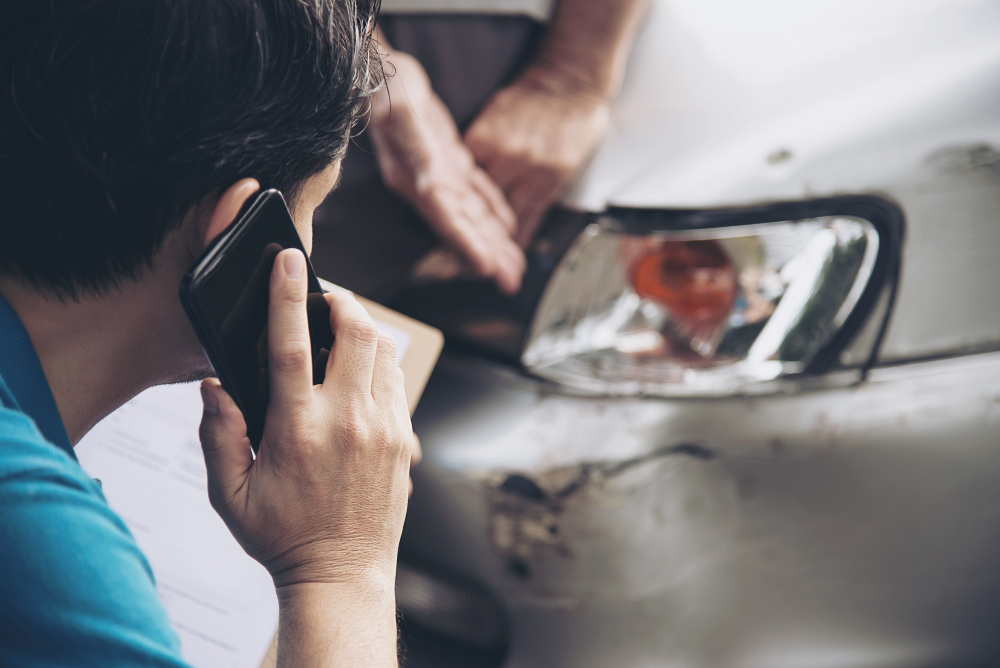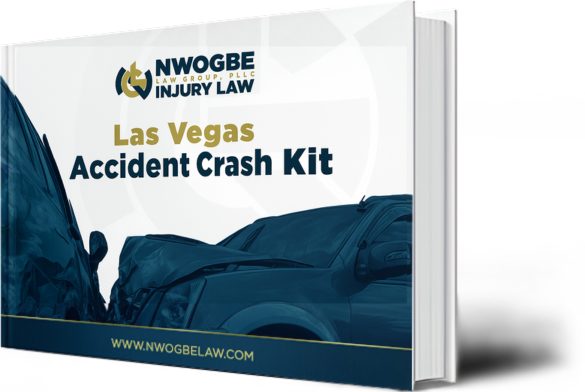Minor collisions happen far more often than most drivers realize — from low-speed impacts in traffic to small parking lot bumps that leave little more than a scratch. Because these accidents appear insignificant, many drivers assume they don’t need to take the same precautions as they would after a major crash. Unfortunately, this assumption often leads to costly mistakes that affect medical claims, insurance coverage, liability decisions, and long-term physical health.
At Nwogbe Law, we see countless cases where individuals underestimated a “simple” fender-bender, only to face denied claims, worsening injuries, or disputes with insurance companies. Understanding what drivers commonly do wrong after a minor crash can help you protect yourself legally, physically, and financially. If you’d like to learn more about accident claims in Nevada, you can speak with our experienced auto accident lawyers.
Even low-speed crashes can cause injuries such as whiplash, soft-tissue damage, or back strain. These injuries often develop slowly, making early decisions extremely important. Additionally, minor collisions can become complicated when drivers panic, apologize, or rush to leave the scene. Taking the right steps — and avoiding the wrong ones — ensures you stay protected.
Ignoring Injuries or Assuming You Are Fine
One of the biggest mistakes drivers make after a minor collision is assuming they are not injured simply because they feel no immediate pain. After an accident, adrenaline surges through the body, often masking pain signals for hours or even days. Many injury symptoms—such as stiffness, headaches, dizziness, neck pain, or limited mobility—develop gradually.
Insurance companies frequently attempt to argue that injuries diagnosed later were not caused by the crash. Seeking medical care as soon as possible protects both your health and your claim. If you suspect your injuries may require legal help or compensation, learn more about your options with a Car Accident Attorney in Las Vegas here.
Not Calling the Police
Many drivers decide not to involve law enforcement because the damage looks small. However, a police report is one of the most essential forms of evidence you can have. Police documentation includes driver statements, witness accounts, visible damage, weather conditions, and an objective summary of the crash. Without this report, insurance companies often challenge your version of events or question whether the accident even occurred.
Calling the police protects you from false claims and ensures that an official record exists to support your case.
Apologizing or Admitting Fault at the Scene
Emotions run high after a crash, and people often react by apologizing — even when they did nothing wrong. While apologizing may feel polite or natural, insurance companies sometimes interpret these statements as admissions of fault. Even simple phrases like “I didn’t see you” or “I’m sorry” can work against you later.
Fault is determined through evidence, not instinctive reactions in a stressful moment. Instead of making apologetic comments, focus on staying calm and documenting the scene properly.
Failing to Exchange Information
Some drivers exchange only phone numbers or decide not to exchange information at all because the damage appears minor. This is a costly mistake. Even gentle impacts can cause hidden alignment issues, bumper damage, or mechanical problems that show up later. Without complete information, filing a claim becomes difficult — or impossible.
Always exchange names, phone numbers, addresses, insurance details, policy numbers, and license plate information. These details ensure your claim has the proper foundation.
Not Taking Photos or Videos
When a collision seems small, many drivers skip documenting the scene. However, photos are one of the most powerful tools you have. Images help prove how the crash occurred by capturing:
• Vehicle positions
• Close-up damage
• Paint transfer
• Road conditions
• Traffic signs and signals
• Weather
• Debris
Photos and videos are often what determine fault when stories conflict. Without visual evidence, your claim may depend solely on conflicting statements.
Leaving the Scene Too Quickly
Drivers often want to move on quickly out of embarrassment or inconvenience. However, leaving too soon can prevent you from gathering the information you need, speaking with witnesses, or noticing delayed injuries. In some cases, leaving without exchanging information may even violate Nevada law.
Staying at the scene long enough to report the incident, gather information, and take photos protects you from unexpected disputes later.
Not Reporting the Accident to Insurance
Many drivers avoid notifying their insurance company because they fear premium increases. Unfortunately, failing to report the collision can violate your policy. If the other driver files a claim first, your insurer may question why you did not report it, which can result in denied coverage or complications.
Reporting the incident promptly ensures your rights remain protected and your insurer cannot claim you withheld information.
Accepting a Quick Settlement Without Legal Advice
Insurance companies often offer early settlements that may seem appealing — especially after a minor collision. However, these offers rarely account for long-term injuries, physical therapy, lost wages, or ongoing treatment. Many victims accept a small payout only to later discover that the settlement doesn’t cover their true costs.
Before signing anything, consult an attorney who can evaluate your case and negotiate a fair settlement. Learn more about how a car accident attorney can help — especially when knowing what to document after a car accident — in this guide.
Not Documenting Symptoms After the Accident
In the hours or days following a collision, your body may show signs of injury that were not obvious at the scene. Stiffness, muscle spasms, headaches, fatigue, difficulty concentrating, and sleep issues are all common after low-impact collisions. Documenting your symptoms in a daily journal helps tie them directly to the crash and strengthens your claim.
Without symptom documentation, insurance companies may attempt to disconnect your injuries from the accident.
Not Contacting an Attorney When the Situation Becomes Complicated
Even minor collisions can escalate into disputes when insurance companies push back or the other driver refuses to cooperate. If you experience injuries, confusion about fault, or delays from insurance adjusters, legal representation becomes extremely important. Handling these matters alone can lead to costly mistakes, missed deadlines, or undervalued claims.
FAQs
Why do minor collisions still require medical evaluation?
Symptoms often appear later, and early treatment helps document the injury for your claim.
Should I call the police even if the accident is small?
Yes. A police report provides essential evidence for insurance and legal protection.
Can apologizing at the scene hurt my case?
Yes. Insurance companies may interpret apologies as admissions of fault.
How long do I have to file a claim in Nevada?
Nevada imposes strict time limits, so contacting an attorney quickly is vital.
Do I need a lawyer for a minor collision?
If injuries, disputes, or insurance issues arise, an attorney can significantly improve your outcome.
Conclusion
Minor collisions may seem insignificant in the moment, but the mistakes made afterward can create long-term physical, financial, and legal challenges. By seeking medical care, documenting the scene thoroughly, notifying the police, avoiding admissions of fault, and contacting an attorney when needed, you protect yourself and strengthen any potential claim. If you’ve been involved in a minor collision and need trusted legal support, contact Nwogbe Law today.





